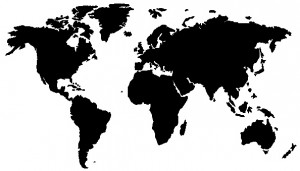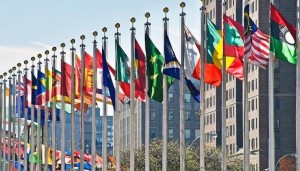At any time, whether you are preparing for the conference, in lobbying time, or in session, you can look at this section, and find help concerning resolutions, research etc. If you need help during the conference, you are always welcome to consult your chair or the secretariat.
Getting started
At EGMUN we expect you to prepare in the best possible way, and that you will be able to represent the views of your country in the forum, upon request of the chair at any given moment.
By collecting information as described below you will know what your country wants in the specific situations and whether you can agree to a point on behalf of your country.
When starting research for your role as a delegate, the first thing you need to understand is that it is very rarely a successful strategy to search directly for your country’s opinion on a specific issue. Avoid googling ‘France’s opinion on democracy in Myanmar’, but rather follow the 3 simple steps explained below.
If you need more inspiration than listed below you can always look at this Position Paper written by a delegate from the French Republic. By writing a Position Paper like this it will enable you to form your own arguments and form an opinion on specific points there may occur at the conference.

1. Research your country

At the CIA World Factbook you can look up facts about major trading partners, main sources of income, charged issues on the national political agenda etc., in order to form a general sense of the cultural climate of your country.

At UN Member States you can find the official UN website of your country. Here you can download statements and speeches made by your country’s representatives and leaders on specific issues and form an opinion of the country’s relations to the UN and it’s intentions with the membership.

Other websites or books provide equal information, but always bear in mind how reliable your source of information is.
2. Research your topic

Search for newspaper articles about your topic. Try to use objective newspapers with an international focus as your main source when searching for articles. Through fairly objective sources you should try to obtain knowledge about the issue, by asking questions such as: Who are the opposing parties? What measures have already been taken, nationally and internationally? – did it help? If not – why?

Download resolutions and reports from the UN at UNBISNET, by searching for any specific nation, treaty, convention, declaration or UN Mission connected to the issue. In some cases it helps searching for the issue as it is worded here on the website, as many of our issues appear in real UN reports, agendas and resolutions.

It is furthermore possible to see whether your country voted in favor or against a previous resolution on the topic. If such information is found, you are advised to notice the year and government at the time there was voted against or in favor. This is necessary to keep your arguments and information valid.
3. Derive opinion

Copy statements made by your country’s leaders and representatives on your topic into a blank document, and try to find the specific points that are important for your country to focus on. Then it will be easier for you to work these points into a resolution.

Add specific facts and numbers about your issue that you may use to support your arguments. If your argument is supported in the form of relevant data, relevant quotes or previous resolutions, it becomes more valid in the eyes of other delegates.

If your country’s opinion isn’t clearly explained through policy statements from official sources. Then try to connect what you know about your country to specific information about the issue and try to form a more general opinion.